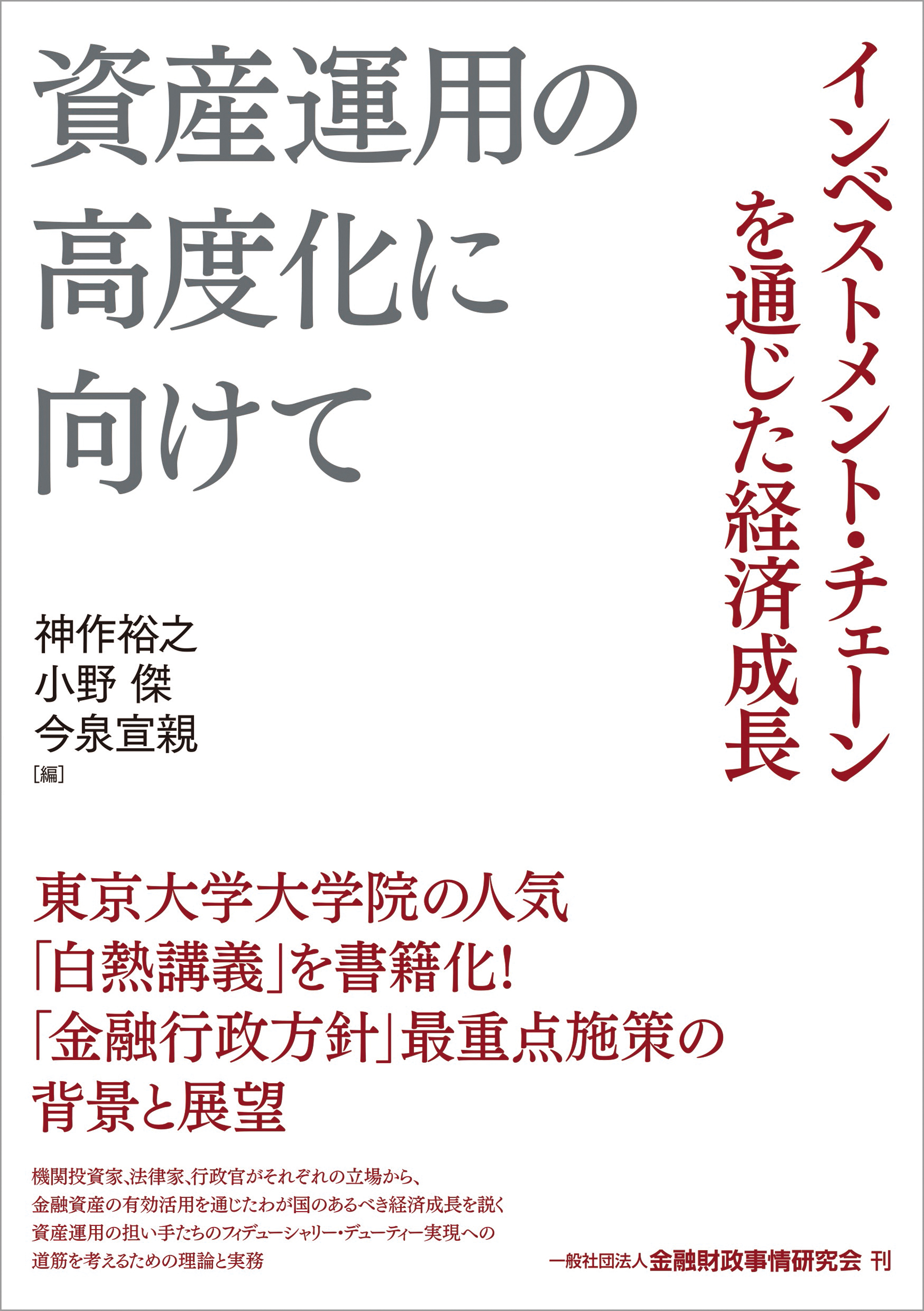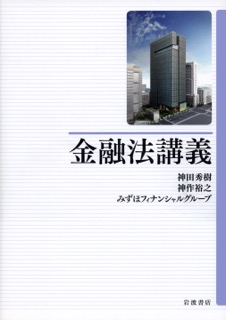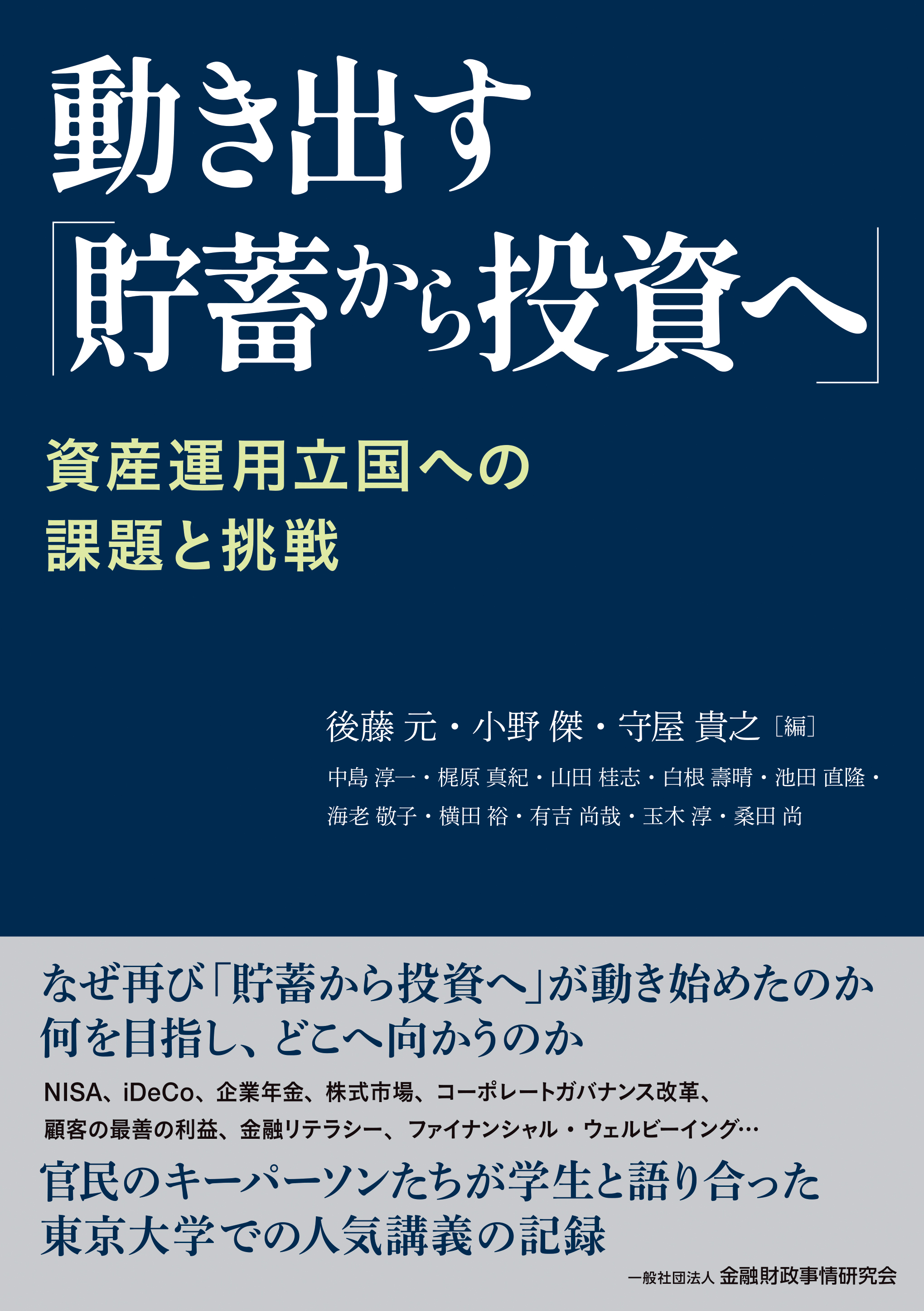
Title
Shisanunyō no Kōdoka ni mukete (Toward Advanced Asset Management: Economic Growth Via Investment Chains)
Size
436 pages, A5 format, softcover
Language
Japanese
Released
March 10, 2017
Published by
Kinzai
Book Info
See Book Availability at Library
Japanese Page
This book is a compilation of records of lectures on “capital markets and public policy” delivered in 2015 to graduate students at this university’s Graduate School of Public Policy and School of Law. This lecture series is delivered every year, with themes chosen from trending legal and policy discussions and from among various issues dealing with capital markets. The lectures are delivered by invited practitioners who are involved in those fields. In 2015, the selected theme was “advanced asset management.”
As birthrates decline and society ages, it will be absolutely necessary for able-bodied citizens to make efforts during their working years to accumulate their own wealth instead of consuming or destroying national wealth in the form of household financial assets amounting to ten and several trillions dollar. However, the composition of financial assets of Japanese households is skewed heavily toward cash and government bonds. Thus, the pace of increase in the value of household assets is significantly lower in Japan than it is in countries such as the U.S., where a more aggressive approach toward asset management is taken.
Nevertheless, amidst the prevailing global low-interest-rate environment in recent years, institutional investors entrusted with savings have had a difficult time obtaining the necessary returns using traditional investments in government bonds and other securities.
Consequently, Japan faces a pressing need to move forward with an “advanced asset management” program and to develop overall “investment chains” from the households, which are the beneficiaries of the efforts of financial institutions, including investment companies.
Thus, because of the increasing policy importance of “advanced asset management,” this subject was chosen as the main focus of the lectures. In addition, the content of the lecture series delivered by experts and practitioners in various fields was thought of as being too important to leave to just a one-time classroom lecture. Therefore, in cooperation with the lecturers, the minutes of the meeting were published.
The lectures dealt with the following topics: asset management in Japan and its technological progress; asset management by institutional investors aiming to invest from the mid-term standpoint of public pensions, investment trusts, and insurance companies; the aim of a Japanese-style stewardship code; fiduciary duties that form the backdrop of “principles related to customer-oriented business operations”; business regulations in Japan that greatly impact the operational behavior of institutional investors; and international topics, such as international financial regulation.
This book remains a compilation of a series of lectures delivered by multiple professionals and practitioners. Thus, reading the book will not necessarily allow for an understanding of academic theories or a systematic understanding of a body of law. In addition, the practical world including the government administration is progressing rapidly and the latest developments are steadily taking place after these lectures, which are not covered in this book.
However, the content of the lecture series delivered by experts, bureaucrats, and people on the frontlines of the legal profession does provide the reader with a good idea of the practical conflicts that occur and the wisdom used to deal with them. Consequently, they paint a picture of how society operates. Therefore, this book offers much that is worthwhile for those seeking to enter the world of public policy and law, along with those that inhabit the halls of academia.
(Written by KANSAKU Hiroyuki, Professor, Graduate Schools for Law and Politics / 2018)



 Find a book
Find a book



